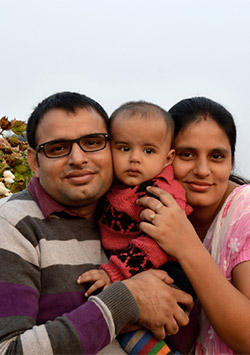Are you feeling
SAD? OVERWHELMED?
ANXIOUS? NUMB?
We understand. We can help.
Telephone Support: (604) 255-7999
Toll Free: (855) 255-7999
www.postpartum.org
(We welcome self-referrals)
We offer telephone support and weekly support groups throughout the Lower Mainland.
We support Dads, too!
(Contact will be with English-speaking staff. Depending on current volunteers, we may be able to arrange support in Hindi or another language.)
It is most important to remember that having postpartum sadness or challenges is not the woman’s fault. It is not an indication that she is incapable, or “crazy”, or weak.

If your youngest child is under three years, or if you are currently pregnant, and you have any of the above feelings, we can help.
“I was worried even before the baby was born, worried about finances and stopping work.”
“During labor, whole night I was screaming with pain. Baby was breech. I ended up with C-section. I was crying, I wanted to breastfeed but I didn’t know English. There was no one helping. My husband wasn’t helping. I was alone. No family here to help.”
“I was worried about my son until he was 4 years old. I didn’t sleep much because I had him sleep with me so I would know if he stopped breathing”.
“In India, there was lots of support from family and even servants. In Canada, it’s just me and my husband.”
“My mom raised four children by herself. I have just one daughter and it’s so difficult.”
“I talked with the nurse and realized I was depressed. I thought, this is my life, I have to get help and help myself.”
“I would tell new moms that she can get support. Try to surround yourself with supportive people. The baby is not just a mother’s responsibility, but the responsibility of the whole family. The new mother can’t do everything. Her parents-in-law, her brother-in-law or sister-in-law who live in the house have the responsibility of creating a good environment. So, that it has good effect on the baby.”
Funding for this section provided by Integrated Primary and Community Care, Vancouver Coastal Health.
Since 1971, the Pacific Post Partum Support Society has been supporting new mothers and their families through the perinatal and postpartum adjustment period. With over 40 years of experience, our Society has developed a unique and effective treatment program for postpartum depression and anxiety.
Our Mission
To end the isolation and distress experienced by many women and their families with the profound life change that accompanies the birth or adoption of a child.
For more information, please contact us at:
Pacific Post Partum Support Society
200 – 7342 Winston Street
Burnaby, BC V5A 2H1
Telephone Support Line: (604) 255 7999
Toll Free: (855) 255-7999
Business Line: (604) 255 7955
www.postpartum.org
Funding for Hindi-language content provided by Integrated Primary and Community Care, Vancouver Coastal Health.
Pacific Post Partum Support Society is located on the traditional, ancestral, unceded, and occupied territories of the xʷməθkʷiy̓əm (Musqueam), Sḵwx̱wú7mesh (Squamish), səlilwətaʔɬ (Tsleil-Waututh), and Stó:lō First Nations.